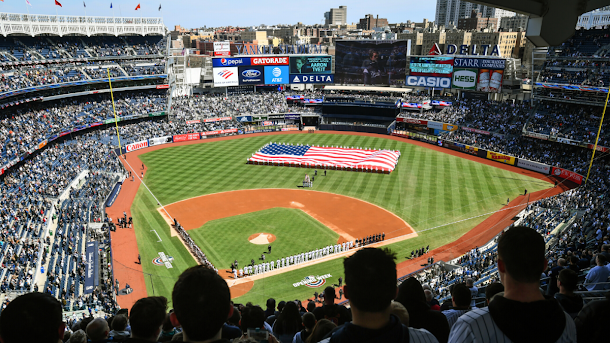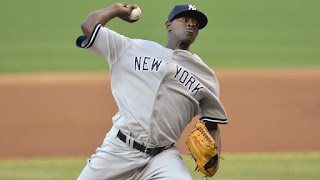Thoughts on the Yankees' 2020 schedule
The luxury of a normal 162-game season which starts in the last days of March and ends in September comes down to the phrase, “It’s only April.” Well, this year, there’s no “only” for the Yankees or any other MLB team. A season consisting of only 60 games leaves very little room for error, for three-game slumps, for a “slow start.” And while the Bombers have found themselves in the postseason for four out of the past five postseasons, there have also been more nail-biter, three-game slump moments than us fans would like.
So, in looking at the modified 60-game 2020 season schedule, what are the chances of the Yankees, finally, taking it all the way to a 28th World Championship?
It is entirely understandable that all MLB teams are playing games against opposing teams in their surrounding areas in order to avoid lengthy travel amid the pandemic. And there are certainly a few advantages that come as a result. The Yanks won’t have to deal with the Oakland Athletics, who have a history of beating the Yankees when the Yankees are a better team.
But… the schedule feels so repetitive. The two two-game sets against Joe Girardi’s Phillies probably shouldn’t go back-to-back; it will feel like one long series. It will be the first time that the Yankees face their old skipper, and it would have been cool if both the Yankees and their fans had the chance to experience that match-up in both the first and second halves of this albeit shortened season.
Similarly, the two three-game sets against the crosstown rival Mets come in short succession, separated by just one two-game set against the Braves. Both Subway Series in a normal season usually occur within a few weeks of each other, but not as close together as they are in this case.
In terms of how the schedule will affect the road to the postseason, the Yankees ending their regular season against the Marlins appears helpful, like an easy win. On the flip side, the Yankees finishing the season against a team that is not only out of their division but outside of their league does not leave room for too many postseason decisions. If it’s a matter of record, sure; if it’s a matter of needing to finish one game ahead in a statistical dead heat with the Red Sox or the Rays, we’ll be spending more time watching those teams fight to their finish to see how their ending placement will affect the Yankees. In other words, the Yankees fate might already be sealed by the time those ending games against the Marlins come around. Beating the Marlins most likely won’t matter in a battle for a postseason spot. Also, from a purely emotional standpoint, why would the season close against the Marlins -- instead of with a series against a greater rival? Surely that won’t help the TV ratings (unless MLB is taking the Jeter angle).
The main story here is that the Yankees face each of the other four teams in their division three times. The two three-game sets and one four-game set against the Blue Jays occur in short succession, but with so few games, it’s possible there wasn’t any other choice.
Finally… why the day off in the first week of the season? Why two days off during two separate weeks in August? Yes, the pitching staff needs to rest, but in a season in which every game matters, one day off for three weeks in a row has to be better than two days off on two separate weeks. Even the Mets (while they start a day later) don’t have a day off until August 6th.
In sum, the schedule isn’t perfect, but nothing about this season is. The important message, more than the schedule itself, is its length -- and the understanding that every game matters. The Yanks can’t afford drop three straight to a mediocre team -- which was a common theme in 2019. There won’t be enough additional meetings with more mediocre teams to guarantee making up those losses.
Article by: Mary Grace Donaldson
Article by: Mary Grace Donaldson



Comments
Post a Comment